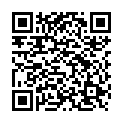|
|
|
| Module code: BITM-110 |
|
|
4V (4 hours per week) |
|
5 |
| Semester: 1 |
| Mandatory course: yes |
Language of instruction:
German |
Assessment:
Written exam (90 minutes / can be repeated semesterly)
[updated 21.03.2018]
|
BITM-110 (P440-0033) International Tourism-Management, Bachelor, ASPO 01.10.2013
, semester 1, mandatory course
BITM-110 (P440-0033) International Tourism-Management, Bachelor, ASPO 01.10.2015
, semester 1, mandatory course
BITM-110 (P440-0033) International Tourism-Management, Bachelor, ASPO 01.10.2017
, semester 1, mandatory course
BITM-110 (P440-0033) International Tourism-Management, Bachelor, ASPO 01.10.2020
, semester 1, mandatory course
|
60 class hours (= 45 clock hours) over a 15-week period.
The total student study time is 150 hours (equivalent to 5 ECTS credits).
There are therefore 105 hours available for class preparation and follow-up work and exam preparation.
|
Recommended prerequisites (modules):
None.
|
Recommended as prerequisite for:
BITM-210 Accounting
BITM-240 Marketing and Market Research in Tourism
BITM-310 Cost Accounting in Tourism
BITM-320 Management in the Tourism Industry
BITM-410 Investment and Financing
BITM-412 Business Taxation and Aspects of International Corporate Taxation
BITM-430 Intercultural Competence
BITM-530 Information, Communication, and Reservation Systems
BITM-580 Economic, Cultural and Tourism Geography
BITM-W-18
BITM-W-19
[updated 29.10.2012]
|
Module coordinator:
Prof. Dr. Achim Schröder |
Lecturer:
Prof. Dr. Günter Pochmann
Prof. Dr. Nicole Schwarz
[updated 25.10.2012]
|
Learning outcomes:
After successfully completing this course students will:
Introduction to Business Administration
- be able to think in economic and especially in business-related dimensions,
- be able to explain economic decisions
- be able to position business administration in the general scientific system and differentiate the sub-areas of business administration
- be able to assess the efficiency of the use of individual production factors and their combined use
- be able to explain the meaning and purpose of business key figures and be able to derive and apply important key figures
- be able to identify the most important characteristics of the strategic management process
- be able to describe selected models for situation analysis and the development of strategies
- be able to give an overview of the connections to tourism-specific and international characteristics of business administration.
Accounting Techniques
- understand how the economic reality within a company and in external relationships to procurement, sales and financial markets is reflected in the company´s figures.
[updated 17.09.2018]
|
Module content:
Introduction to Business Administration
- Basic concepts and interrelationships in business administration
- Economies and business administration
- Production factors
- Operational key figures to measure the efficiency of factor input
- Strategic corporate management and strategy approaches
- Planning, decision making and control of business processes
- Concepts and approaches in the operational areas of production and sales, investment and financing
Bookkeeping
- Business account system
- Transactions in asset management, operating activities and financing activities
[updated 17.09.2018]
|
Teaching methods/Media:
Lecture, exercises and discussions with students, as well as presentations by the students
[updated 17.09.2018]
|
Recommended or required reading:
Introduction to Business Administration
- Beschorner, D. / Peemöller, V. H.: Allgemeine Betriebswirtschaftslehre, aktuellste Aufl., Herne/Berlin
- Jung, H., Allgemeine Betriebswirtschaftslehre, latest edition, München
- Olfert, H. / Rahn H.J.: Einführung in die Betriebswirtschaftslehre, latest edition, Ludwigshafen
- Schierenbeck, H.: Grundzüge der Betriebswirtschaftslehre, latest edition, München und Wien
- Schmalen, H / Pechtl H..: Grundlagen und Probleme der Betriebswirtschaft, latest edition, Stuttgart
- Vahs, D. / Schäfer-Kunz, J.: Einführung in die Betriebswirtschaftslehre, latest edition, Stuttgart
- Wöhe, G. / Döring, U.: Einführung in die Allgemeine Betriebswirtschaftslehre, latest edition, München
Bookkeeping
- Bieg, Hartmut: Buchführung. NWB-Verlag. Herne, latest edition
- Wöhe, Günter/ Kußmaul, Heinz: Grundzüge der Buchführung und Bilanztechnik. Vahlen, München, latest edition.
[updated 21.03.2018]
|


